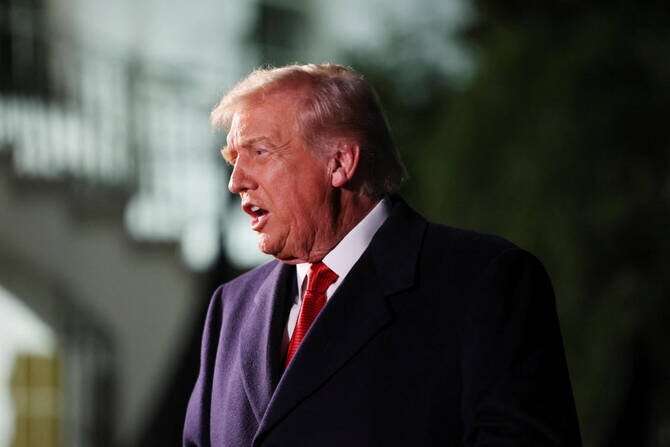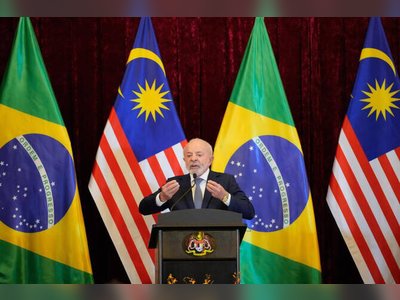
Trump Slams 'Dirty' Canada Amid Row Over Reagan Ad Withdrawal
US President Donald Trump criticizes Canada for pulling anti-tariff ad featuring Ronald Reagan, impacting trade talks.
Washington: US President Donald Trump has criticized Canada for engaging in 'dirty' tactics after the Canadian province of Ontario decided to withdraw an advertisement featuring former US President Ronald Reagan.
The decision was made in order to restart stalled trade negotiations.
Trump accused the ad of misrepresenting Reagan's views, particularly regarding tariffs.
He expressed his disapproval by canceling all negotiations with Canada over what he termed a 'fake' ad campaign.
Ontario Premier Doug Ford then announced that the province would pause its US advertising campaign starting Monday, aiming to resume trade talks.
The controversy centers around an anti-tariff ad from Ontario that used quotes from Reagan's 1987 radio address on trade, warning against the potential consequences of high tariffs on the US economy.
The Reagan Presidential Library confirmed that the quotes accurately reflect Reagan’s stance on trade wars and tariffs.
This incident adds a layer of complexity to the already strained relationship between the US and Canada, particularly concerning trade issues.
Both countries face ongoing tensions over tariffs imposed by Trump, impacting sectors such as steel, aluminum, and autos in Canada.
Despite these challenges, both nations remain parties to the USMCA (United States-Mexico-Canada Agreement), which maintains tariff-free status for about 85% of cross-border trade.
The situation took a turn with the World Series, featuring the Toronto Blue Jays against the Los Angeles Dodgers, further intensifying the rhetoric.
Trump emphasized his stance that Canada engaged in unfair advertising practices and suggested he could respond with equally 'dirtier' tactics if necessary.
The escalating tensions highlight ongoing issues in bilateral relations, particularly regarding economic strategies.
Canadian Prime Minister Mark Carney called for a shift in strategy, acknowledging the need to address the impacts of high tariffs imposed by the US, reminiscent of levels seen during the Great Depression.
The decision was made in order to restart stalled trade negotiations.
Trump accused the ad of misrepresenting Reagan's views, particularly regarding tariffs.
He expressed his disapproval by canceling all negotiations with Canada over what he termed a 'fake' ad campaign.
Ontario Premier Doug Ford then announced that the province would pause its US advertising campaign starting Monday, aiming to resume trade talks.
The controversy centers around an anti-tariff ad from Ontario that used quotes from Reagan's 1987 radio address on trade, warning against the potential consequences of high tariffs on the US economy.
The Reagan Presidential Library confirmed that the quotes accurately reflect Reagan’s stance on trade wars and tariffs.
This incident adds a layer of complexity to the already strained relationship between the US and Canada, particularly concerning trade issues.
Both countries face ongoing tensions over tariffs imposed by Trump, impacting sectors such as steel, aluminum, and autos in Canada.
Despite these challenges, both nations remain parties to the USMCA (United States-Mexico-Canada Agreement), which maintains tariff-free status for about 85% of cross-border trade.
The situation took a turn with the World Series, featuring the Toronto Blue Jays against the Los Angeles Dodgers, further intensifying the rhetoric.
Trump emphasized his stance that Canada engaged in unfair advertising practices and suggested he could respond with equally 'dirtier' tactics if necessary.
The escalating tensions highlight ongoing issues in bilateral relations, particularly regarding economic strategies.
Canadian Prime Minister Mark Carney called for a shift in strategy, acknowledging the need to address the impacts of high tariffs imposed by the US, reminiscent of levels seen during the Great Depression.










